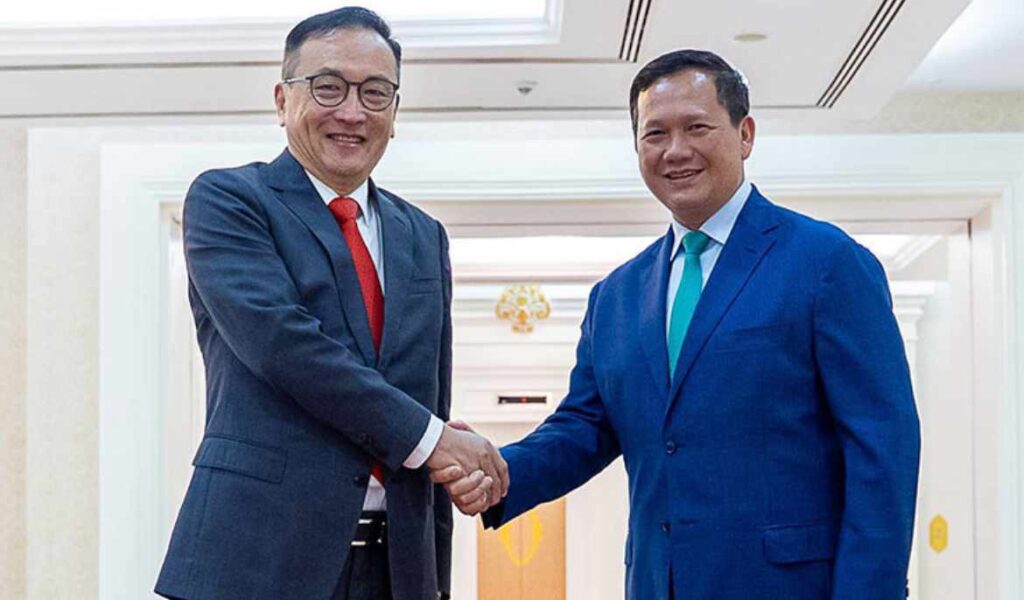Beijing Scitech Holdings, a prominent Chinese conglomerate, Monday expressed interest in investing in Cambodia’s crude oil refining sector and related downstream industries.
The interest was revealed during a high-level meeting between Zhu Yujiang, Chairman of the Board of Directors of Beijing Scitech Holdings Co. Ltd., and Prime Minister Hun Manet at the Peace Palace in the capital.
Zhu expressed his gratitude for the opportunity to meet with the Prime Minister and praised Cambodia’s rapid development across various sectors, attributing the country’s progress to the leadership of Senate President and former Prime Minister Hun Sen, as well as current Prime Minister Hun Manet. He noted that with each visit to Cambodia, he observes continuous improvements.
He also welcomed the strengthening cooperation between China and Cambodia, highlighting the robust and evolving bilateral relationship.
During the meeting, Zhu told Mr Hun Manet that Beijing Scitech Holdings is eager to explore investment opportunities in crude oil refining and the production of value-added products from refining residues.
He said, “Such investment would support Cambodia’s socio-economic development and boost its manufacturing productivity.”
Mr Hun Manet welcomed Zhu and his team, expressing appreciation for the company’s interest in Cambodia’s energy sector. He reaffirmed the Kingdom’s open stance toward foreign investment and emphasized that the Royal Government continues to implement policies and incentives aimed at encouraging investment in key sectors, including energy and manufacturing.
“Strengthening supply chains is a strategic priority for Cambodia, aimed at promoting the production of semi-finished and finished goods for both domestic consumption and export,” Mr Hun Manet said.
He encouraged Beijing Scitech Holdings to explore the full scope of investment opportunities in Cambodia. He also asked the company to work closely with relevant ministries and institutions to conduct detailed feasibility studies that align with the country’s economic priorities.
Speaking to Khmer Times, Lor Vichet, Vice President of the Cambodia Chinese Commerce Association (CCCA), said Cambodia’s favourable investment climate and numerous incentives have encouraged many Chinese companies to invest in the country, especially those with full foreign ownership.
He emphasized that Cambodia’s pro-business policies are a key factor drawing investors from China and beyond.
“Additionally, Cambodia has signed multiple free trade agreements with countries worldwide, making it easier for companies to establish operations and export to Cambodia’s trading partners,” he said.
These agreements such as those with China, South Korea, and the member states of the Regional Comprehensive Economic Partnership (RCEP) have significantly improved Cambodia’s role as a strategic hub for international trade in the region.
Vichet added that Cambodia’s appeal is further enhanced by strong government protections and investment incentives designed to support foreign enterprises.
These combined factors open investment policies, international trade access, and government support have made Cambodia an increasingly attractive destination for Chinese businesses and other international investors.
Chinese investment accounted for about 73.35 percent of Cambodia’s total investment capital in January 2025, totaling $548.65 million out of the country’s overall $748 million, according to a report released by the Council for the Development of Cambodia (CDC) in early February.
The CDC report identified China as the top investor, with Vietnam coming in second, contributing 5.52 percent.



